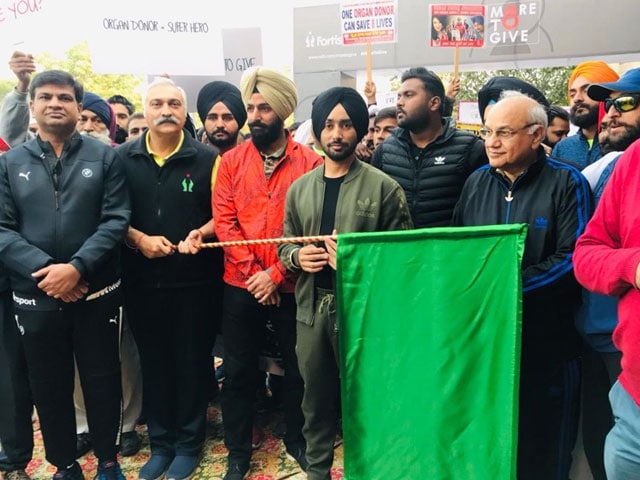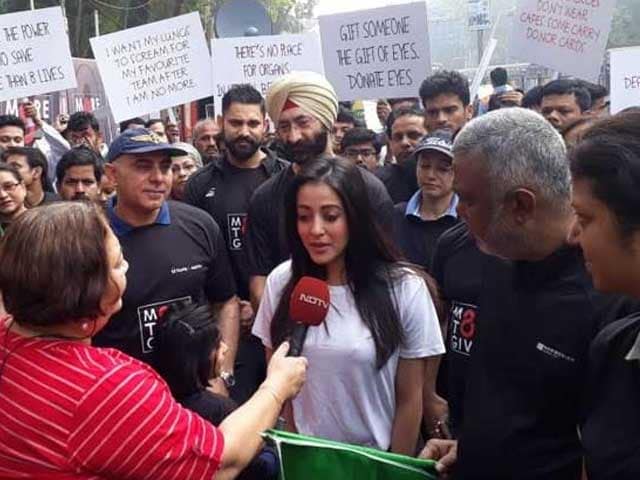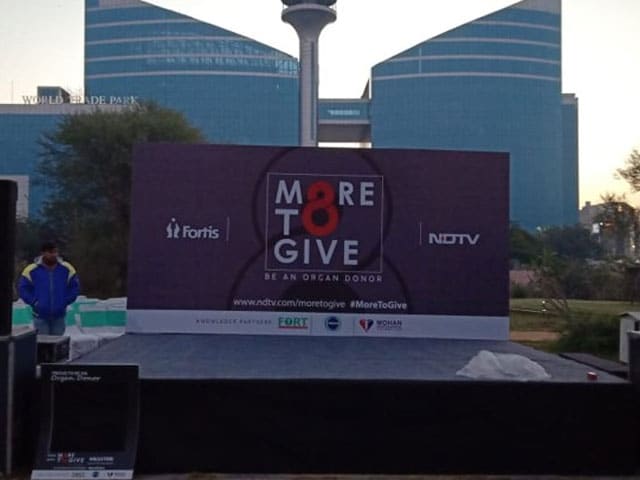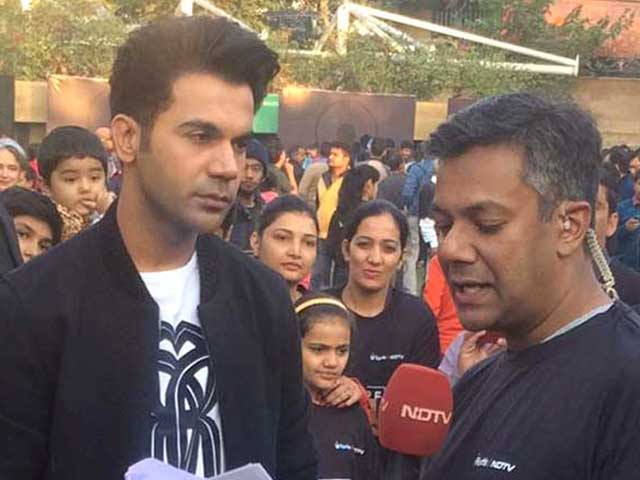20-year-old Anmol Juneja built his legacy in a way that many wouldn’t imagine for themselves. However, behind that were his father’s decisions that ended up not only changing but saving the lives of as many as 34 people in India.
On a fateful day of December 2012, Anmol was on his way home in East Delhi. After speaking with his father minutes before he was hit by truck near the Madhu Vihar flyover, he was admitted to the nearest hospital, instead. However, having suffered a serious injury to his head, Anmol was declared brain dead after two days.
Madan Mohan Juneja, Anmol’s father, took the hardest decision at a time when most parents break down. He decided to keep his son alive in the form of those who needed a second innings in their lives.
He decided to donate his son’s vital organs.
“The senior doctor told me that all his organs were functioning except his brain” said Madan Mohan. “The doctors asked what I wanted to do with Anmol, how long I wanted him to be on ventilator.” Since, there was no real grasp of the kind of injury Anmol’s brain had suffered, the blood clot could possible lead him to be paralysed for the rest of life.
Be it a coincidence or a miracle but Anmol’s father had watched a documentary on organ donation only a week ago. Having understood the value of organ donation and its justification in his religion, Madan Mohan knew how he wanted his son to be remembered.
“As soon as the doctor said the word ‘organs’, I remembered the documentary we watched at Guru Ji’s satsang (religious meeting) only a week ago and it just felt like the right thing to do” said Anmol’s father. “I didn’t want Anmol to pass away in pain which he would have if we kept him on ventilator or had he became paralysed and bed-ridden.”
At AIIMS, Madan Mohan was asked for Anmol’s bone, skin and eyes besides kidneys and liver. His only request in return was to give Anmol enough respect. “I asked the doctors to give me Anmol’s body in a way that could be cremated without grimace and to wash him with Ganga Jal (holy water)” said Anmol’s father. “The doctors told us that we didn’t need to worry about that and that Anmol would be bathed and brought to them in a hospital ambulance by 10.30 am.”

It was later found that Anmol’s eyes were donated to four people as a result of India’s first such technic where an eye could be transplanted in two people while his kidneys and the entire liver were used to save different people as well.
In fact, in the medical history of AIIMS, Anmol’s was the first case where the entire liver was transplanted in another person. “In India, this was the first case of 100% liver transplant. Nobody donates an entire liver, only an accident victim can” said Anmol’s father.
Despite hospitals having a counselling team to convince the families of accident victims to donate their loved one’s organs, most refuse if not lash out on the staff. Even when those parents would agree, their relatives would talk them out of the decision.
Anmol’s organs eventually saved the lives of 34 people in India. Today, his father is in touch with one of the families where a woman received Anmol’s kidney. She is a sub-inspector in Delhi Police and her father maintains a good relation with Anmol’s parents.
Their meeting with Anmol’s father wasn’t by chance, either. Though, the doctors refused to share the donor’s family details and their address, they did inform them the family belong to Delhi’s Geeta Colony.
The sub-inspector’s brother and his son, too, resided in the same colony. With 118 houses in the colony, it wasn’t very difficult for them to spot the only house where a death had happened in the recent past.
“We prefer speaking on the phone, though I have met her (the lady who received Anmol’s liver) once. It is very emotional for me” said Anmol’s father. “When NDTV showed the special program in January, I received a call from the person who got Anmol’s liver, too.”
Today, Anmol and his father stand as an inspiration to everyone who have either lost a loved one to an accident or want to become organ donors in the future. With Madan Mohan’s wish to have his son remembered in a good way after his death, he has well achieved that with the decision he took.
“Shah Jahan built the Taj Mahal to remember Mumtaj, but I think there is nothing better than donating organs. It beats everything else. The shine in the eyes of those who received Anmol’s eyes is far brighter than the Taj Mahal” said Anmol’s father.
True to his name, Anmol, which means ‘priceless’, became so in his death and gave 34 people a new beginning.











Anmol was really a God for all those 34 people.
But there are very less people who understand donation.
My Mother has also donated her liver to one of our famliy member , but after receiving liver they never came back to my mother…..Sometimes we feel its worthless donating.
But i really appreciate,adore Anmol’s Family who took this decision…
Regards
Hats of to Anmol’s family for giving life to so many. This is the ultimate service. Their son lives on .i hope more families come forward,
Very inspiration story indeed. May Anmol’s soul rest in peace and kudos to Anmol’s father for such a wonderful decision to donate Anmol’s organs to needy people. May gold bless him.
May his soul rest in peace and the story be an inspiration for others to donate organs.
what an Anmol contribution and thought. Salute to the family who in such tough times thought of things around them and saved many lives. Humanity personified… Kudos
Indeed a great and very courageous step. In a place like Delhi where people are fighting for petty things , acts like these do make one believe that humanity is still alive. I have been staying in Delhi for past 36 years and what i have seen is exponential increase in cunningness ,corruption , greed , jealousy , bringing harm to others for no reason or reason know to those who do such acts. I wish Madan Ji with all my heart
Inspirational….hats off to Anmol (RIP) and the great parents……!!!
Hats of to Anmol and his father for the decision @very hard stage. His soul rest in peace but lightened many lives. Arnol lives in the form of 34 hearts and their loved ones.
Inspiring one for others too.
After having read the article, I became really very emotional. Though it is easier to say but difficult to make such decision. Hats off to Anmol’s father. However, Anmol is still alive by means of these persons who could survive. It is required that many more such persons come forward with such firm decisions. Last but not the least, May Divine give a special place for Anmol.
God bless Anmol’s family. Sir your decision in that situation is inspiring. Your decision not only gifted life to 34 recipients but brought happiness to 34 families. Hats of sir. Anmol lives in the hearts of every netizen read this news and every citizen knew this news. He lives in 34 recipients and he is a Chiranjeevi..
Wish all the best, happy and healthy living for all the 34 recipients. Hope its time for the Government to provide some sort of benefits to both donor and recipients.
God Bless to Anmol and his family.
These kind of inspirational news will really lift the confidence and morale of the people. Madanji has taken a great decision to donate his sons’s organs in a situation where most of us will not even think about. I bow my head with all respect to him. I am sure Anmols soul will rest in peace after this grateful act. In a time where one person is responsible for taking away many lives, it is truly heartening to learn that one person can keep 34 people alive.
Thank you NDTV for sharing this news
Hats of to Anmol’s parent.
I have a real satisfaction that i have seen a real god in the form of Anmol & his parents.He is a real roll model for organ doners .The life of Anmol has increased by another 100 years.May god bless him and his parents.